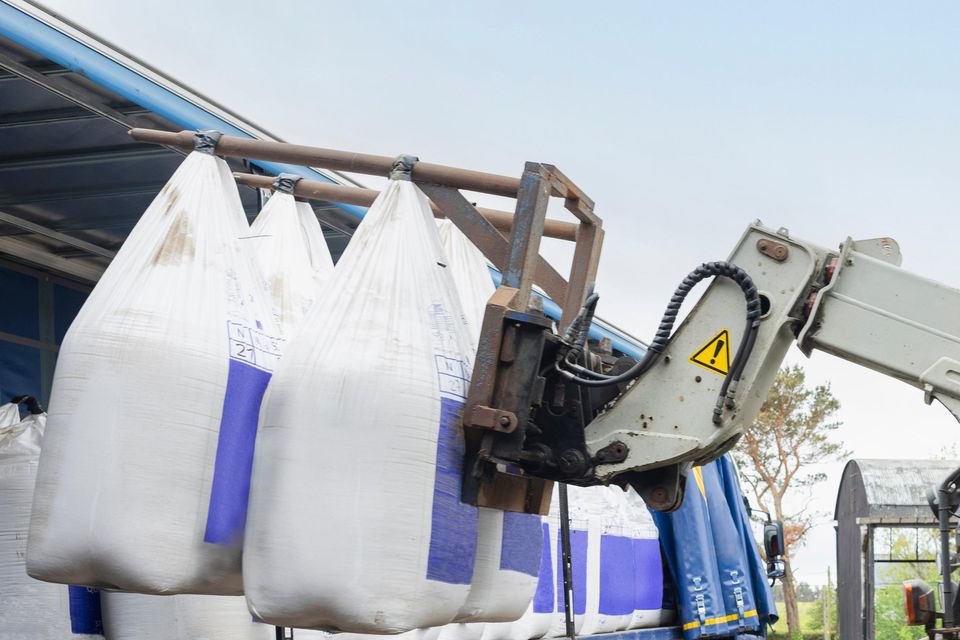Fertiliser sales fall by 18% for second year running in 2023
In the 2023 crop year, 50pc of fertiliser sales took place in the three months from April to June. Image: Getty
Total fertiliser sales fell by 18pc for the second year running in 2023, new data from the Central Statistics Office has shown.
Fertiliser sales are now at the lowest level seen in the period 2000-2023, at 1.1m tonnes, last year. This is down 32.6pc from 2021 levels.
The nitrogen (N) content of fertilisers sold in 2023 was 18pc lower than in 2022 at 280,569t, while the phosphorus (P) content of fertilisers sold in 2023 was down 10pc on 2022 at 30,762t.
Lime sales decreased by 27pc in 2023 to 1m tonnes, down from 1.4 m tonnes in 2022.
In the 2023 crop year, 50pc of fertiliser sales took place in the three months from April to June.
Clare O'Hara, Statistician in the CSO Environment Division, said: "These nutrients enhance crop production but can also be lost from agricultural soil to groundwater, surface water and air, contributing to environmental pollution.
“...For each year from 2015 to 2023, at least 75pc of fertiliser sales took place between January and June, with less than 10pc occurring between October and December.
“In 2023, 50pc of fertiliser sales were in April to June while 25pc were in January to March. Loss of nutrients to the environment is affected by the amount of rainfall at the time of fertiliser application."
Meanwhile, a total of 11,500t of Russian origin fertiliser worth €2.5m was imported into Ireland in February, according to the latest available data from the Central Statistics Office (CSO).
The imports were worth some €9m in 2023, a substantial decrease on the €148.5m in 2022.
The CEO of Yara International recently said Europe is “sleep-walking” into becoming dependent on Russian fertiliser, just as it did with gas.
The EU experienced significant changes in its fertiliser imports from Russia during 2022-23.
Nitrogen imports into the EU increased by 34pc compared to the previous period.
Urea imports surged by 53pc on 2020-21, with 40pc of the total originating from Russia.
As reported by the Financial Times, Svein Tore Holsether, Chief Executive of Yara International said: “It is a paradox that the aim is to reduce Europe’s dependency on Russia, and then now we are sleepwalking into handing over critical food and fertilising power to Russia.”
He also raised concerns that Russia could use its dominance in the fertiliser market for political leverage.















